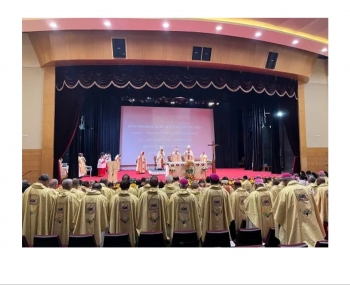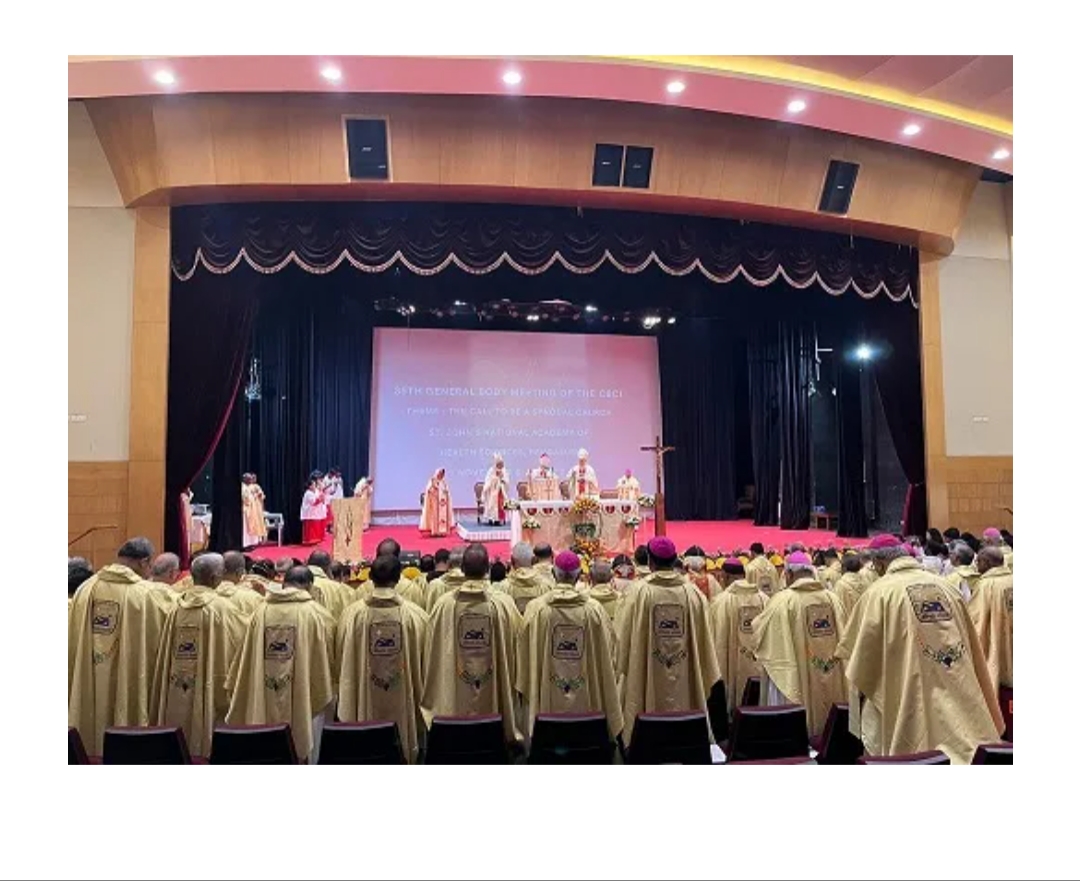
.jpg) Felix Wilfred
Felix Wilfred

I was in Rajkot to address a mission conference just a few days ago. The occasion was the twenty-fifth anniversary of the missiological journal Third Millennium, initiated by the visionary bishop Mar Gregory Karotemprel and is now passionately supported by the present bishop Mar Jose Chittooparambil. It was heartening to see theological initiatives from bishops and to realize that they are not always on the receiving end. Was it not the case with bishops of early centuries like Augustine, Ambrose, Basil, Chrysostom and others who were great Church leaders and simultaneously outstanding theologians? The Church continues to read their writings and nourishes itself as they have become classics and sure points of reference. But, without a theological vision, a bishop becomes a blind leader who is bound to falter and fall on his own, not to speak of being capable of leading his flock.
In fact, the visit was a unique experience for me as I could meet with some hidden gems of Indian hierarchy working in the missions in the Saurashtra region. These bishops may not be known as many others, but I had the impression that they are exemplary leaders with the "smell of the sheep".
I spoke at the conference about why we should not make synodality an instrument for the goal of mission. We tend to make everything into means and not see things as what they are in themselves and their worth. Right processes are more important than the goals. Hence, we must think of our mission to become synodal. After I spoke, a participant raised a question: If synodality is to become a process in the Church, why do we continue to address the Church leaders as "Your Beatitude, Your Eminence, Your Grace, and Your Excellency". He wondered when we would stop these forms of addressing. I reminded him that decades ago, the CBCI resolved to do away with such addressing.
However, suppose someone honestly feels a leader has beatitude, eminence, grace, and excellence. In that case, there should not be any objection since they have the freedom of ex
Moreover, there is the human weakness and frailty to which the bishops are no exception. Addressing this way could become a “honey-trap” for the leader about which he should be vigilant. I mean that it should not be construed by the leader as a mark of loyalty to him personally, much less to the Church.
There are many clerics who are almost twenty-four hours in their cassocks. Wearing this robe is not necessarily a mark of loyalty to the Church. Is it? As the old saying goes, habitus non facit monachum – the dress does not make one a monk. Nor does it make one loyal to the Church.
At this point, I cannot resist recalling what a bishop-friend who is no more narrated to me once. There was a senior priest in his diocese who was the kingpin of all the troubles for him and behind most anonymous letters against him. But he was always found in his cassock and sash. When this priest meets the bishop, he will almost fall prostrate and passionately kiss his ring. Anyone will be taken up by this gesture of surrender and extraordinary deference. Not so, my bishop friend. He was a clever prelate with sharp perceptions of human behaviour and good judgement on men and matters. He told me that the more this particular priest bowed down to kiss his ring, he knew he could surely expect the following days another anonymous letter denigrating him "below the belt"!
We realize how by addressing with these titles, Church leaders could easily foment hypocrisy if people know that such addresses are expected by him, and he relishes it. There is no end to human proneness to vanity. In fact, people are exploiting this human weakness in Church leaders when doing all this to placate them with ulterior motives. This, unfortunately, creates a very unhealthy atmosphere in the Church and the loss of genuineness and honesty; all the more so when not addressing bishops with these titles and refraining from kissing the ring is taken for lack of loyalty, and indeed as an offence.
“Vanity of vanity, all is vanity” reminds us the wisdom Book of Ecclesiastes. A wise leader should know that people address him with honorific titles and lift him up with their words of praise, not because of his personal merits or extraordinary qualities; they will do this to anyone who occupies the seat of power tomorrow. If a leader takes this to heart very personally, it is really pathetic and pitiable.
As for kissing the rings, I think we cannot leave any option here. We need to be guided by the advancement in medical sciences, which tell us that there are millions of microbes in the human body which could be easily transmitted. Hence, for health reasons, kissing of rings --which was, in feudal times, a sign of loyalty of the tenant to the Lord – should stop immediately, especially after the traumatic experience of Covid-19. In feudal times, they knew nothing of microbiology. Did they?
It is time that we concentrate on more important things than titles and rings. I know these words are written as the CBCI meeting is being held in Bangalore. The titles and honours could also affect this body if they go to choose the president and other office-bearers based on the titles they hold. Following this path may not assure renewal and reform in the Church but rather ensure the maintenance of the status quo.
If change and renewal are to be effected, the leaders should go beyond titles of Beatitude, Eminence and Grace; discern and identify, as is done in the papal election, the bishop, independent of the title, who has the qualities of leadership for our times. The gems are to be discovered. The maturity of CBCI, I think, will be demonstrated when it chooses an ordinary bishop with great vision and leadership as its president and does not go by the trodden path of choosing necessarily prelates with high-sounding titles.
More than the titles, we need today attend to the relationship of the leader to the community. It could be a bishop, religious superior, head of an institution, etc. The insulation of the leader from the community he serves could be disastrous.
Let me illustrate the point with an incident in aviation history. If you are flying these days and are a keen observer, you will notice that of the two pilots navigating the aircraft, if anyone of them gets out of the cockpit to go to the toilet, an air hostess enters the cockpit. It is not to help the pilot in his job. She may be absolutely ignorant of anything technical about navigating the aircraft. It is a standard Operating Procedure (SOP) for safety.
The reason behind is what happened on 24 March 2015 during a flight of Germanwings, a subsidiary of Lufthansa, when it was flying from Barcelona to Duesseldorf. When the pilot got out of the cockpit to go to the toilet, the co-pilot Andreas Lubitz locked the door of the cockpit firmly, and what he did was horrendous. He wanted to kill himself, so he crashed the plane over the French Alps, killing 144 passengers and 6 crew members.
I think this is a powerful metaphor of what could happen to the parish, to the diocese, to the religious congregation, to the diocese, to the institution when the head insulates himself or herself from the body of the community being served. The greatest danger to the Church is when its leader is insulated and left alone in his cockpit. Renewal and reform in the Church will happen when there is more communication and interaction and synodality is practised in governance. Is this not the most crucial thing, overriding all considerations of tiles and rings?